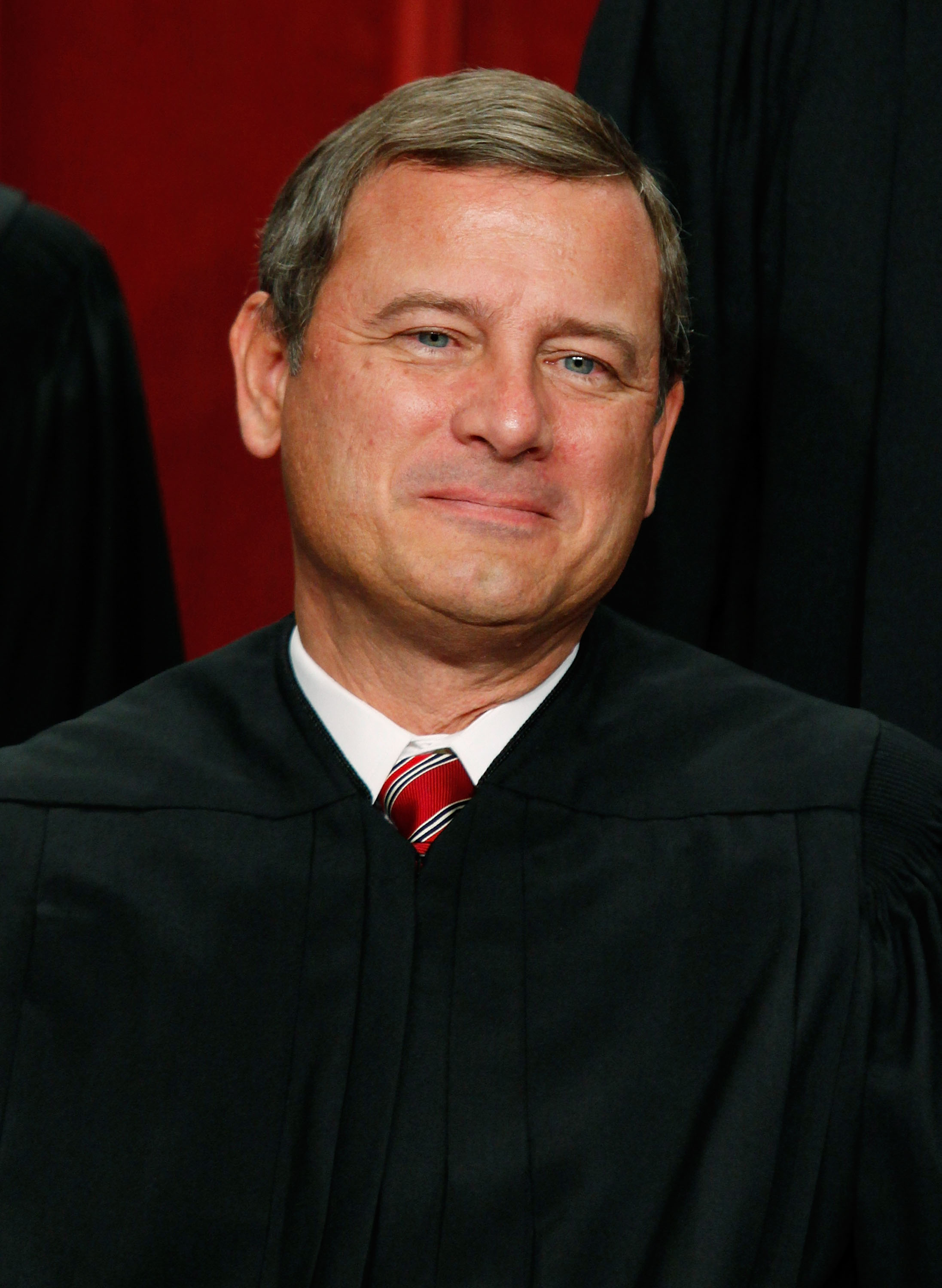
Will Chief Justice John Roberts come in for the same harsh criticism at the first Democratic presidential debate next week as he did at the Republican debate two weeks ago?
Chances are that he will. The chief justice, who took some hard shots from Senator Ted Cruz at the GOP talkfest over the Roberts’s Obamacare decisions, may well be blasted by former Secretary of State Hillary Clinton and Senator Bernie Sanders over the court’s decisions in Citizens United (the First Amendment’s protection of independent expenditures in campaigns), Hobby Lobby (the Religious Freedom Restoration Act’s protection of conscience against Obamacare’s contraceptives mandate), and gun cases finding the Second Amendment to be an individual’s right.
The Roberts Court has been extremely well-run and has moved the jurisprudence of the U.S. in an originalist direction consistently and cautiously—”judiciously” comes to mind as the best adjective—and thus it isn’t surprising that the chief justice will be a target for campaigns from both left and right as beliefs, convenience and political necessity require.
What is unfortunate is that the real culprits in the politicization of the court that has led it to be a subject in presidential debates are rarely mentioned: Justices David Souter, Harry Blackmun and William Brennan. These three justices far more than any others did not merely occasionally disappoint the presidents who appointed them—and thus the people who elected those presidents—they also positively reneged on the implicit deal between a president and his nominees, an unspoken understanding that the nominee knows the general beliefs of the president sending him or her to the Senate and generally agreed with that set of beliefs.
This is not a demand for a nominee’s agreement on “litmus tests,” and it cannot even be an explicit understanding. Any justice who does not at least occasionally surprise and frustrate the president and the party that brought him or her forward to the bench really cannot be understood to be doing their job since neither party has a monopoly on what the law will say about circumstances not yet anticipated.
Rather, it is a Supreme Court nominee’s basic obligation to candidly and honestly consent to be nominated by a president who ran on a platform and who is the only person in the U.S. to represent all the citizenry. Nominees know generally what their nominators have said on most issues and what they have campaigned on. Nominees know what their nominators have set out to do.
Nominees, to put it bluntly, know whether they have any business allowing a president of well-known positions and goals to nominate him or her to a highly visible position that will impact the public’s trust of government greatly and for decades to come.
No nominee can tell a president what he or she will decide on any given case or even category of cases. That is impossible and unethical, unfair to future litigants and a breach of the separation of powers so central to constitutional government. Indeed any justice who did not occasionally disappoint or even anger the president who selected him or her would not be a justice-giver at all, but some sort of telepathically operated drone, and one that can see far into the future at that.
But nominees who occasionally disappoint, surprise or even anger on this case or that case—even very big ones—are very different from nominees who must know at the moment they accept the nomination that they will be undermining the political process that brought the president to the Oval Office by embarking on a jurisprudential legacy dramatically opposite of what the president and the Senate who nominated and confirmed him or her expected respectively.
Those nominees who become justices opposing the president who sent them forward across scores of cases large and small buttress the widely-held and growing view in the country that when it comes to Washington, D.C. and even state politics, no one can be trusted to put that the integrity of the judicial nomination process ahead of their own ambition or well hidden ideological agenda.
Those nominees who turn out to be Trojan Horses in robes deserve searching and perhaps searing appraisal of their understanding of what judicial ethics requires of nominees when they are first offered a job on the Supreme Court or any court.
“If this president or governor really knew me, would he or she pick me?” is a question that, if a nominee cannot answer “Yes” to, should lead the nominee to withdraw from consideration.
Chief Justice Roberts, despite his decisions regarding Obamacare (or perhaps especially because of them) had to have known that President Bush knew what the soon-to-be Chief understood his job to be and the broad outlines of his philosophy.
That’s all a president can ask of a nominee: Not for assurances of 100% money-back guarantees, but of candor in the nomination process and consistency across decades. The second President Bush got that with Chief Justice Roberts. The first President Bush did not with Justice Souter.
Justices who depart wholesale from all or even most of the expectations of the president—and the millions of voters who empowered the president to make his or her decisions—engender deep distrust of the judiciary and the Constitution itself. They ought to be the target of debate barbs, not a Chief Justice whose body of work is extremely scholarly, consistent, originalist and of lasting constructive impact on the rule of law.
Hugh Hewitt is a radio host, lawyer and author of The Queen: The Epic Ambition of Hillary and the Coming of a Second ‘Clinton’ Era.’
More Must-Reads from TIME
- Cybersecurity Experts Are Sounding the Alarm on DOGE
- Meet the 2025 Women of the Year
- The Harsh Truth About Disability Inclusion
- Why Do More Young Adults Have Cancer?
- Colman Domingo Leads With Radical Love
- How to Get Better at Doing Things Alone
- Michelle Zauner Stares Down the Darkness
Contact us at letters@time.com